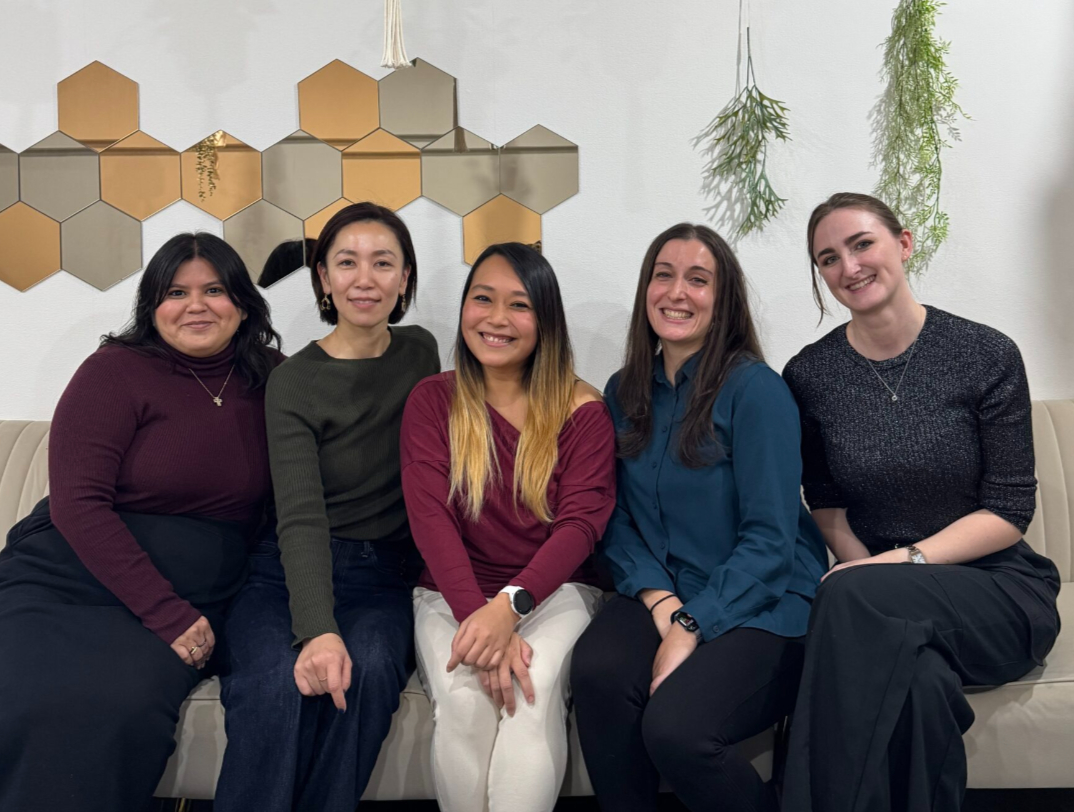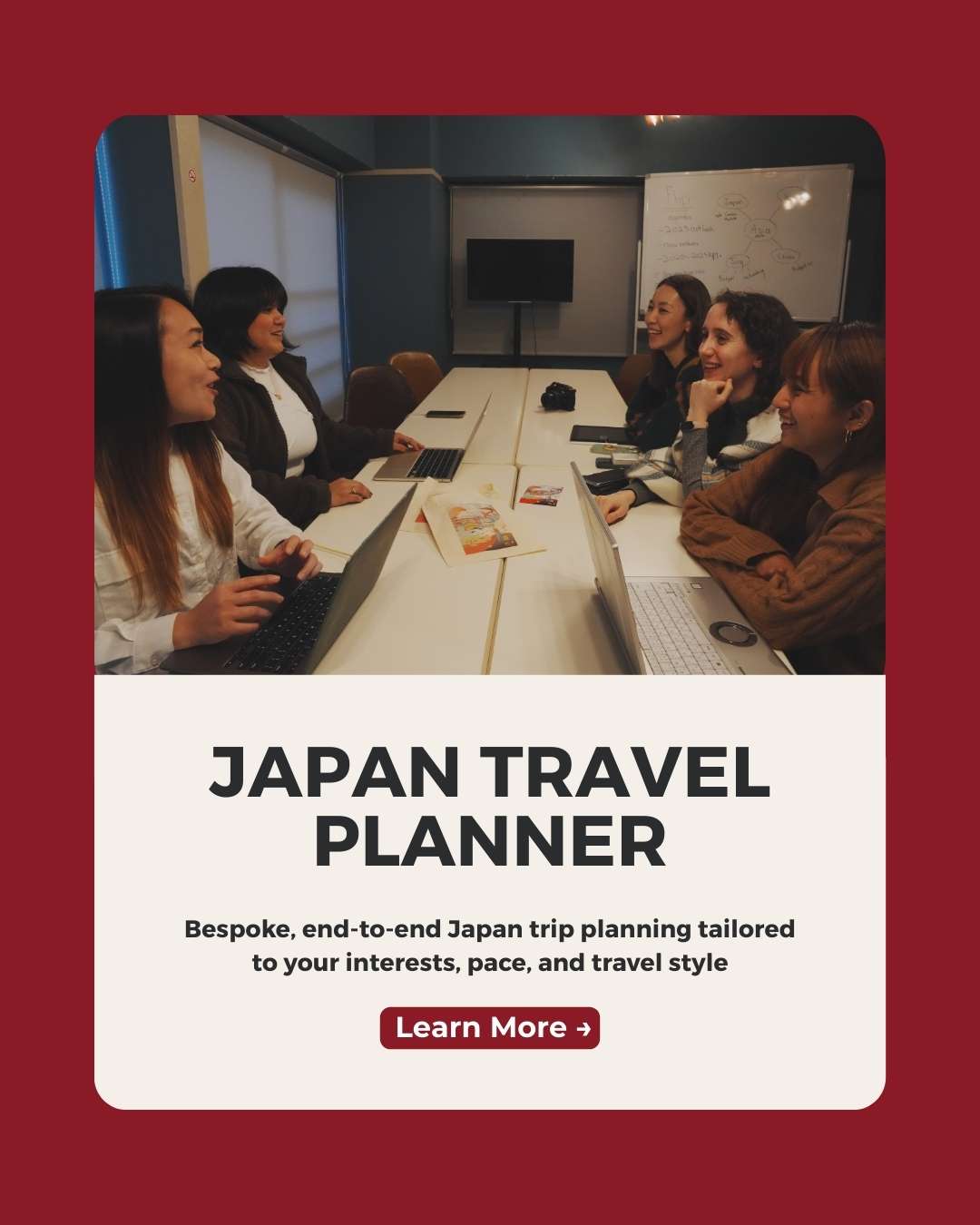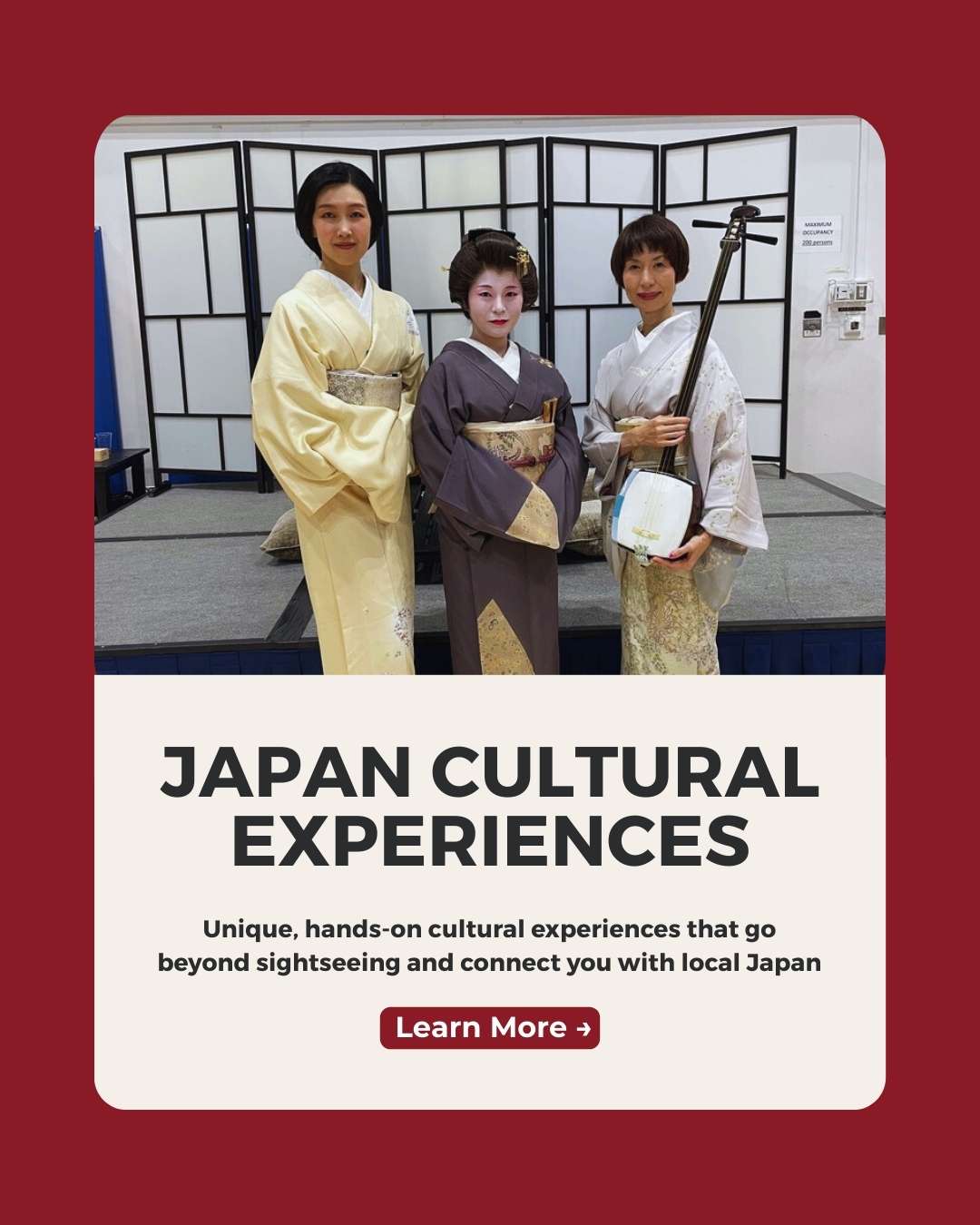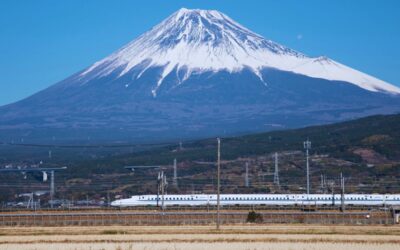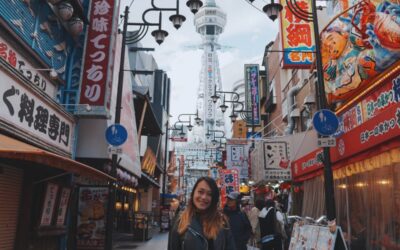Are you thinking about moving to Japan? Are you wondering what kind of Japan visa you can get and what requirements are needed to be able to get your foot into this country? When considering Japan visa types and requirements, many people think of student visas or working visas. However, what you might not know is that there are quite a few different Japan visa types you could consider.
In this blog post, let’s break down all the different Japan visa types and the particular requirements you should know to start your journey moving to Japan.
Japan Visa Types

Tourist Visa
For certain nationalities, including citizens from the United States, Australia, Argentina, and most European cities, a tourist visa is not required for any stay less than 90 days. For other nationalities, you can apply for a short-term stay visa. Under this visa, you can stay in Japan for up to 30 days, but the visa is also valid for up to 90 days. Because you are visiting Japan for tourism purposes, you are not allowed to engage in paid work while in Japan.
Working Holiday Visa
Working holiday visas allow applicants to work part-time while staying in Japan. It is a special visa for people between the ages of 18 and 30, but depending on your country, this age range may change. Its purpose is to allow younger people to visit Japan and experience the culture, fostering a deeper relationship between Japan and its partner countries.
Internship Visa
You can receive a temporary visitor visa for internships. If you are an undergraduate or graduate student, you can receive a visa on the grounds that your internship counts as part of an academic program. Internships that last fewer than 90 days are counted as voluntary activities and thus are carried out under visitor’s status. If you are doing an internship in Japan via an internship agency, make sure to coordinate with them to see if any visas are necessary for your experience.
Student Visa

Exchange Student
For those who are going to study in Japan, you must provide your passport, Certificate of Eligibility, and acceptance letter from your Japanese university to apply for a student visa. Apply at your nearest Japanese Embassy or Consulate.
Japanese Language Student
Student visas can also be provided to students studying at Japanese language schools. Those planning to study Japanese at a language school can obtain a visa issued for 6 months to up to 2 years. Be sure to keep in contact with your language school for more guidance and advice on applying for a visa.
General Visa
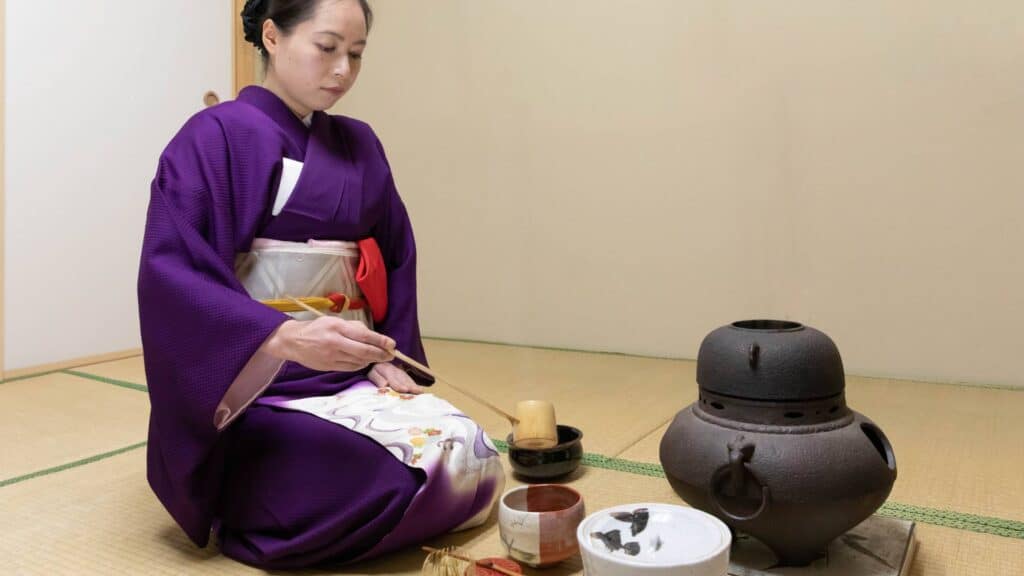
Cultural Activities
(Examples: unpaid internships, people studying the tea ceremony or Japanese flower arranging)
Cultural visas can be given to those who plan to study Japanese culture, art, or skills while in Japan. It is a non-work visa that can be used for three months to up to three years. It is a good visa if you are looking to learn more about Japanese culture because the visa extends broadly to a variety of different cultural traditions. Some of these include studying Japanese tea ceremonies, instruments such as Taiko drums, and Japanese flower arrangements.
You can also get a cultural visa if you are doing an unpaid internship in Japan. You will need to provide all necessary documents detailing the school, institution, or company you will be studying with, as well as your residence in Japan. It is also necessary to get a Certificate of Eligibility.
Student
(Examples: college students, pre-college students)
If you’re looking to study abroad in Japan for an extended period, you’ll need a student visa. A student visa will be necessary for language schools, universities, and vocational schools. You will need your passport, a visa application form, a photograph of yourself, and a Certificate of Eligibility to apply. Depending on your nationality, you may need to bring more documents and forms.
Training
(Examples: trainees in a local government)
Training visas are issued to those who are going to Japan to train under an organisation or government to acquire new skills. You must belong to an organisation outside of Japan that will send you to Japan to be trained there. Training visas can range from three months to one year and require a passport, visa application, photograph, and Certificate of Eligibility.
Dependent (Family Stays)
(Examples: The spouse and children of a foreign national with working visa)
Dependent visas are issued to families where one parent or partner works in Japan. For example, a spouse and children of someone with a working visa can apply for a dependent visa. This visa allows applicants to carry on with their daily lives in Japan and does not require them to work. Dependent visas can be approved for up to five years. Like the rest of the other general visas, you need a Certificate of Eligibility.
Highly Skilled Professional Visa

Highly skilled professional visas are awarded to foreigners participating in advanced academic research, advanced specialised or technical activities, or advanced business management activities. You need to meet the criteria based on their point-based system to be eligible to apply.
You will need to fill out a Point Calculation Form where you show all your qualifications. If you obtain at least 70 points on the evaluation, you qualify for a visa. Your points are divided into four main categories: your academic background, your professional career, your annual salary, and your age. You can also obtain additional points for fulfilling certain requirements.
You can find all of these requirements online, but some examples are having Level N1 or N2 proficiency on the Japanese Language Proficiency test, having previous research achievements, or having a degree issued by a Japanese higher education institution. You must only work for the company that sponsored your visa. If you wish to seek work elsewhere, you must apply for a standard work visa.
Work Visa
If you are planning to work in Japan, you can apply for a work visa. Work visas can be obtained by providing your passport, visa application form, a photograph, and Certificate of Eligibility. Like other visas, be sure to check what specific documents are needed for your nationality, as the requirements may differ from country to country.
Professor
(Examples: university professor, assistant professor, assistant)
If you are a professor, assistant professor, or are participating in any research activities in Japan, you can apply for a professor work visa. Be sure to provide all the necessary documents and proof of professor or researcher status.
Artist

(Examples: composers, songwriters, artists, sculptors, craftspeople, photographers)
Artists can apply for a working visa too! This includes musical artists, songwriters, composers, sculptors, painters, photographers, art professors or instructors, and craftworkers. If you earn income via your art, you can apply for this visa.
Religious Activities
(Examples: religious people such as monks, bishops, missionaries)
A member of a foreign religious organisation who seeks to pursue religious work in Japan can apply for a work visa. It is important to note that you must be carrying out religious work in Japan to be eligible, not just simply a practitioner or student of religion. Monks, bishops, and missionaries, for example, can apply for this visa.
Journalist
(Examples: newspaper journalists, magazine journalists, editors, news cameramen, announcers)
For those who have a contract with a foreign company or organisation to do journalism in Japan, you can also apply for a work visa. This includes newspaper and magazine journalists, editors, news cameramen, announcers, broadcasters, and documentary movie crew.
Business Manager
(Examples: company presidents, directors)
You must apply for a business manager work visa if you are looking to start a business in Japan or if you own a business in Japan. Your business must satisfy certain requirements, such as your company having an office space in Japan and having your business plan approved by authorities. You also must prove you have enough salary or income to live independently in Japan. Make sure you are eligible for this visa in advance and be sure to check all of the requirements you and your business must have.
Legal/Accounting Services
(Examples: attorneys, judicial scriveners, public accountants, tax accountants certified in Japan)
Those working in legal or accounting businesses must be certified to work in their service in Japan before applying for this visa. Even if you are certified in your home country, you still must get certified to practise in Japan. Examples of professions that can apply for this visa are attorneys, judicial scriveners, public accountants, tax accountants, social and labour insurance consultants, and land and house investigators.
Medical Services

(Examples: physicians, dentists, pharmacists, nurses certified in Japan)
Like the legal/accounting services visa, medical services visas are only awarded to those who are certified in Japan to engage in medical treatment. People with these qualifications in the medical industry can apply, including doctors, nurses, pharmacists, dentists, and more.
Researcher
(Examples: researchers, investigators, etc. at research institutes)
Anyone undertaking public or private research in Japan can apply for a work visa. You must be on a contract with a foreign or Japanese organisation or company. Forms of research also include investigation, academic research, and surveys.
Instructor
(Examples: teachers at elementary schools, intermediate schools and high schools)
If you are going to be teaching at an institution in Japan, you are eligible to apply for a work visa. This eligibility extends not only to elementary schools, junior high schools, and high schools but also to vocational schools, handicapped schools, and schools for the blind.
Engineer/Specialist in Humanities/International Services

(Examples: scientific engineers, IT engineers, foreign language teachers, interpreters, copywriters, designers, etc.)
This visa is quite broad—it extends to those who are going to engage in activities related to knowledge and skills in Social Science, Natural Science, or Humanities. Engineers, foreign language teachers, interpreters, translators, copywriters, designers, and salespersons can apply for this visa, for example. This visa acts as a comprehensive visa for applications that do not fit into a more specific category.
Intra-Company Transferee
(Examples: people transferred to the Japanese branch (head office of the same company)
This visa is for applicants who work for an organisation outside of Japan and are going to be transferred to the Japanese branch of their company. If you are working for a stock exchange-listed company or a highly trusted and well-known company, you may be able to get your visa issued quickly even without a Certificate of Eligibility.
Nursing Care

(Example: certified care worker)
Care workers who have graduated from a certified care worker facility in Japan and have the necessary qualifications can apply for this visa. Note that this is a different category from the medical services work visa.
Entertainer
(Examples: musicians, actors, singers, dancers, sportspeople, model)
Anyone engaging in entertainment or musical performances can apply for this visa. Musicians, actors, singers, dancers, sportspeople, models, and any mainstream entertainers are eligible. It includes any staff or coaches necessary to carry out performances and events. This visa also extends to those involved in the “entertainment industry,” such as hostesses in bars or nightclubs.
Skilled Labor
(Examples: chefs specializing in the food of a foreign country, animal trainers, pilots, sports trainers, sommeliers)
This visa is for jobs that require specific skills or techniques in a special field. This includes cooks, engineers, technicians, animal trainers, pilots, sports trainers, and wine sommeliers.
Specified Skilled Worker
(Examples: work-ready foreign nationals who possess certain expertise and skills in certain industrial fields)
This visa is for those who have skills in certain industrial fields. Professions under this specification include nursing care, building cleaning management, construction, electronics, shipbuilding, automobile repair, food service, agriculture, and more.
Technical Intern Training
This is a general visa granted to those who will train in Japan for special skills and knowledge. The expectation is that the trainee uses their new skills once they return to their home country after training.
English Teacher

(Examples: JET, English language school teacher, teacher at a school or university)
You must apply for a visa before you start your work as a teacher in Japan. Contact your organisation or school for more information on your necessary visa. Your visa length will depend on your teaching contract length, but visas can also be renewed in Japan. Make sure you have all your necessary documents organised and ready to apply!
Specified Visa
Spouse or Child of Japanese National
The spouse and children of a Japanese national can apply for a visa. This also applies to children adopted by Japanese nationals. For spouses, after three years of marriage, they may be able to apply for permanent residence in Japan.
Spouse of Permanent Resident

Spouses of those with a Permanent Resident status or Special Permanent Resident status in Japan can apply for this specified visa. Permanent or Special Permanent Residents include anyone who lost Japanese nationality through peace treaties between Japan and another country or children of Permanent or Special Permanent Residents.
Long-Term Resident
(Examples: persons with Japanese ancestry, Indochinese refugee settlers, the spouse or children of Japanese nationals left behind in China)
This is a special visa for people with Japanese ancestry, Indochinese refugee settlers, and the spouses or children of Japanese nationals remaining in China after World War II. The category for this visa is narrow, and for a broader visa, look for a Permanent Resident visa.
Designated Activities
(Examples: foreign nationals who wish to enter Japan as personal help privately employed by diplomats, foreign nationals who wish to enter Japan for a working holiday or for paid internships, candidate nurses and care workers who wish to enter Japan based on an EPA)
This visa is broad and extends to various purposes. It is for people pursuing activities in Japan that are specifically designated by the Ministry of Justice. Examples of applicants for the designated activities visa include foreign nationals who wish to enter Japan as personal help privately employed by a diplomat, foreign college students doing unpaid internships in Japan, and candidate nurses and care workers coming to Japan under an EPA.
The variety of candidates for this visa varies greatly, so be sure to seek further guidance from a Japanese embassy or consul on how to apply for this visa.
Designated Activities (Long Stay for Sightseeing and Recreation)
There is a specified designated activities visa for long stay for sightseeing and recreation. You can stay in Japan for a vacation for up to one year. You are not allowed to work under this visa, and you must be in Japan at the time of the application.
Start-Up Visa

This visa is for entrepreneurs supported by municipalities in Japan and the spouse or children of the entrepreneur.
Start-up visas are one of Japan’s initiatives to revitalise the economy and help entrepreneurs conduct business in Japan. If you are looking to start and run your own business in Japan but do not have the proper resources or time to apply for a business manager visa, you can apply for a start-up visa. You must be supported by municipalities in Japan and must showcase your plans for your innovative business. This visa is valid for six months.
Diplomatic Visa
Anyone participating in official diplomatic practices, including diplomatic agents, diplomatic couriers, and foreign government officials, can apply for a diplomatic visa. Any foreign national who receives the status of “Diplomat” is allowed to stay in Japan for the length of their “Mission.” For this visa, diplomats will need official documentation issued by their foreign government or international organisation.
Official Visa
Any member of a foreign government or international organisation formally recognised by the Government in Japan that is travelling to Japan to conduct official business can apply for an official visa, along with their families. It is important that applicants applying for this visa are doing so specifically for the purpose of conducting official business, and if they are travelling to Japan for tourism or a holiday, then they will be granted the status of temporary visitor.
Unlocking Opportunities with the Right Visa

Navigating the various Japan visa types and requirements can seem daunting, but with the right information and preparation, you can find the visa that best suits your needs and aspirations. Whether you’re planning to study, work, or simply experience the rich culture of Japan, understanding the specific criteria for each visa type is crucial. From short-term tourist stays to long-term professional engagements, Japan offers a wide array of visas tailored to different purposes. By carefully reviewing the requirements and ensuring all necessary documents are in order, you can streamline your application process and avoid common pitfalls.
Remember, each visa type has unique conditions and benefits, so take the time to explore your options thoroughly. Consulting with relevant agencies or institutions can provide additional guidance and support. As you embark on this exciting journey, stay informed and proactive in meeting all visa requirements. With determination and the right resources, you can successfully secure the appropriate visa and look forward to an enriching experience in Japan.


